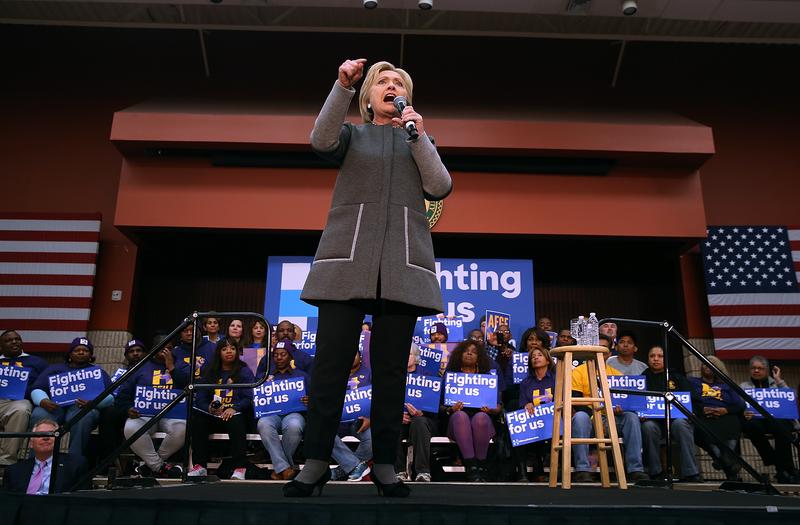
In presidential elections, New York is rarely contested. Candidate visits are few, and ads are almost nil.
But last night's results set two New Yorkers on a course to face each other November.
Both Hillary Clinton and Donald Trump won seven states in Super Tuesday voting, significantly enhancing their delegate counts and pushing them closer to capturing their party's nominations. The two front-runners took their parties' primaries in delegate-rich Georgia, Tennessee and Virginia, as well as Alabama and Arkansas. Clinton also carried Texas, the night's biggest prize, and significantly, Massachusetts, which borders Vermont.
As in South Carolina on Tuesday, Clinton's big victories were powered by huge majorities among African American voters in the south. In Massachusetts, the only northern state with a measurable non-white vote, Clinton took over sixty percent of that vote.
Republican Ted Cruz won his home state of Texas, as well as neighboring Oklahoma. Democrat Bernie Sanders picked up a home-state win as well, in Vermont, and won in Oklahoma, Minnesota and Colorado. Florida Sen. Marco Rubio won only the Republican primary in Minnesota, despite a flood of Republican officeholders rallying around him in recent days.
To be sure, everyone who won a state Tuesday night is vowing to press on. But the results were the first large-scale test of the candidates' appeal, and two New Yorkers appealed the most.
In a typical election year, New York sends only money to campaigns (even Ted Cruz, who lambastes "New York values" comes here to raise funds.) And ideas: New York's academics, intellectuals, and this year, political movements like Occupy Wall Street.
But this year the state may be sending two candidates who've been able to succeed on New York's big stage. Paradoxically, their celebrity status makes Americans from all over feel connected to them. Still, both Clinton and Trump own their status as New Yorkers. Clinton makes her first post-Super Tuesday appearance at the Javits Center just a mile from Trump's home, a very New York, even Trumpian, move.
Trump's win comes despite strong criticism from the Republican party for failing to fully denounce Ku Klux Klan leader David Duke and his white supremacist organization during a weekend appearance on CNN. But even in New York, Trump finds support. Even at a Republican watch party on the Upper East Side. "Trump is someone that energizes people who are normally disenfranchised from the establishment of the Republican Party, and sometimes feel disenfranchised from elections because they don't see candidates that relate to them," said Mark Gianfalla, a native Long Islander who now lives in Manhattan and works in finance.
That appeal sets up the general election tension: Trump's critique of Clinton aligns in some ways with Sanders' critique of Clinton: that she's too establishment, too beholden to special interests. Tuesday's results underscored that overlap: Sanders won in states like Oklahoma, and he won Oklahoma by winning all the rural, working class, and poorer counties.
Dan Cantor, head of the Working Families Party and a Sanders supporter, said Clinton's way to appeal to those voters is to be more like Sanders. He said Tuesday's vote showed blue-collar workers will respond to a genuinely progressive economic agenda.
"If Clinton is the ultimate nominee she'll have to make sure she continues to talk about the things Sanders has been talking about. Which she has done. The campaign has been talking very much about the issues that he has raised. Those are winning issues."
But at a Brooklyn bar Tuesday night where Sanders supporters were gathered, as the television blared Clinton's victory speech and she was promising to go up against corporate polluters and companies who treat workers poorly, one young voter quipped: "except if they are on Wall Street or have given to the Clinton Foundation."
New York's primary is in April.
